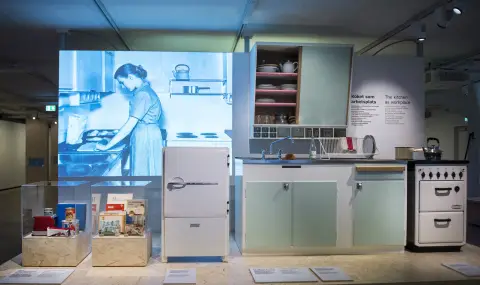They have been waiting a long time to hear this news: IKEA will pay financial compensation to thousands who went through prisons in the former GDR, where they performed forced labor for the Swedish furniture company. For this purpose, the company has prepared six million euros.
This is how IKEA fulfills its promise from 2012, when the first report on exploited prisoners in the GDR was published. It became clear that a number of West German companies were also involved in the forced labor system, such as the catalog company Quelle or the supermarket chain Aldi.
The fact that IKEA is setting the stage is of historical significance, Evelyn Zuppke, the federal representative for victims of the dictatorship of the Socialist Unity Party of Germany (SUD - the communist party in the former GDR), told DW. According to her, IKEA shows how people who suffered during the dictatorship can still be helped today.
The money promised by IKEA will flow into a general fund to help people in difficult situations, which the Bundestag intends to adopt by the end of this year. So far, such funds exist only in the eastern German states, and only victims of the dictatorship living in the territory of the former GDR are entitled to compensation from them. The new fund will also allow people who are currently living in the western provinces to receive compensation.
The money will be enough for 2,000 people
According to the calculations of the representative for the victims of the GESP dictatorship, the millions from IKEA alone will provide financial support for around 2,000 affected people. Zuppke also hopes that German companies will follow suit and join the fund to help the victims. However, other companies have so far shown no willingness to compensate people who performed forced labor in the past. A study by the Humboldt University in Berlin, published in April 2024, also yielded no results - although it listed numerous such cases. For example, it is alleged that political prisoners were forced to produce tights that were sold in Aldi.
Cameras for Quelle and Otto
The study describes how products produced with forced labor in the GDR ended up in West German stores and mail-order catalogs. Prisoners in Cottbus were forced to produce Praktica cameras for customers of Quelle and Otto. Audio cassettes for the company Magna were produced by prisoners in Dessau. In this way, the GDR regime obtained urgently needed hard currency from capitalist abroad.
The system of forced labor in GDR prisons existed for several decades: "The use of prisoners was aimed at exploiting their labor for the benefit of the state-planned economy," the study states. "From the 1950s until the end of the GDR in 1990, between 15,000 and 30,000 prisoners were subjected to forced labor each year, mainly in areas where civilians did not want to work due to the poor conditions."
Solitary confinement for recalcitrant prisoners
Prisoners who resisted risked severe punishments - from the loss of privileges, such as receiving visitors and parcels, to being sent to solitary confinement for three weeks with minimal rations. "We regret and condemn the apparently widespread practice in the former GDR of using political prisoners and convicts for forced labor", said a spokesperson for the supermarket chain Aldi after the report was published.
Why is Aldi refusing to pay compensation?
However, it is unlikely that Aldi will follow IKEA's example - although it has been known since 2013 that the discounter's products were also produced in the infamous Hohenek women's prison in the GDR. "Due to the time distance from the events, however, the details can no longer be processed to the extent necessary for a final assessment of the compensation decision", Aldi explained its negative position.
For now, IKEA remains the only company that participates in the fund to support former forced laborers. The agreement reached now is the result of years of talks between IKEA, Federal Commissioner Evelyn Zuppke and the Association of Commissioners for Victims of the Communist Regime in the GDR, whose chairman Dieter Dombrowski also served forced labor in a GDR prison in the 1970s. "We set out on this path together and IKEA has already met with those affected. The decision shows the direction and we hope that other companies will follow IKEA's example," Dombrowski told DW.
Author: Marcel Fürstenau
